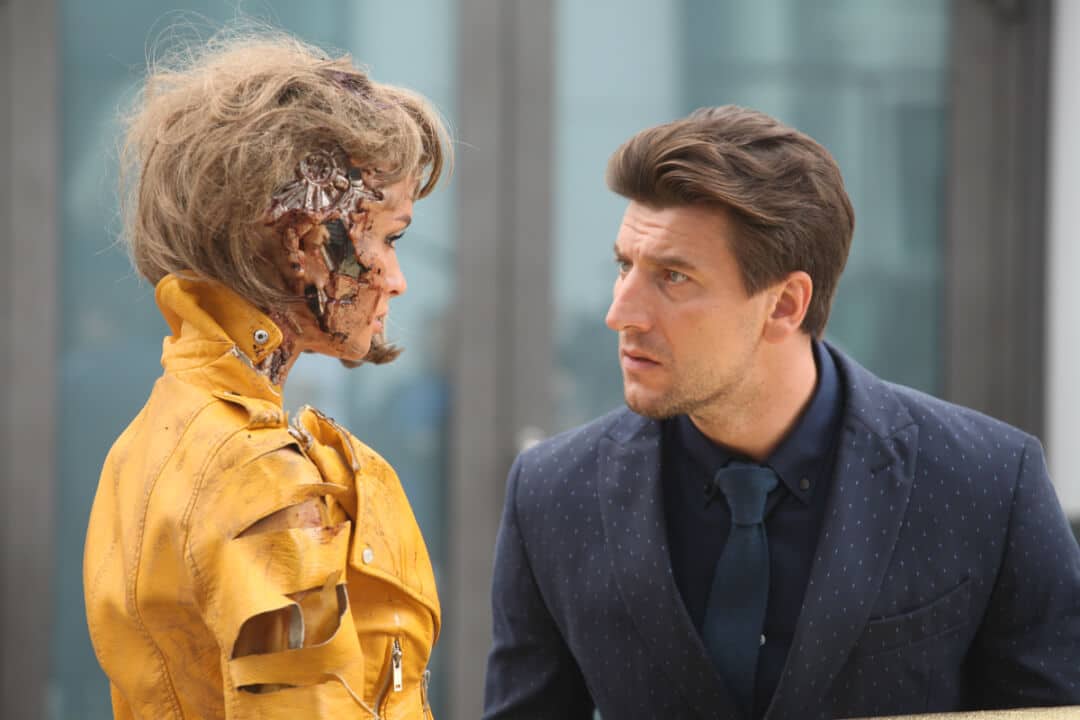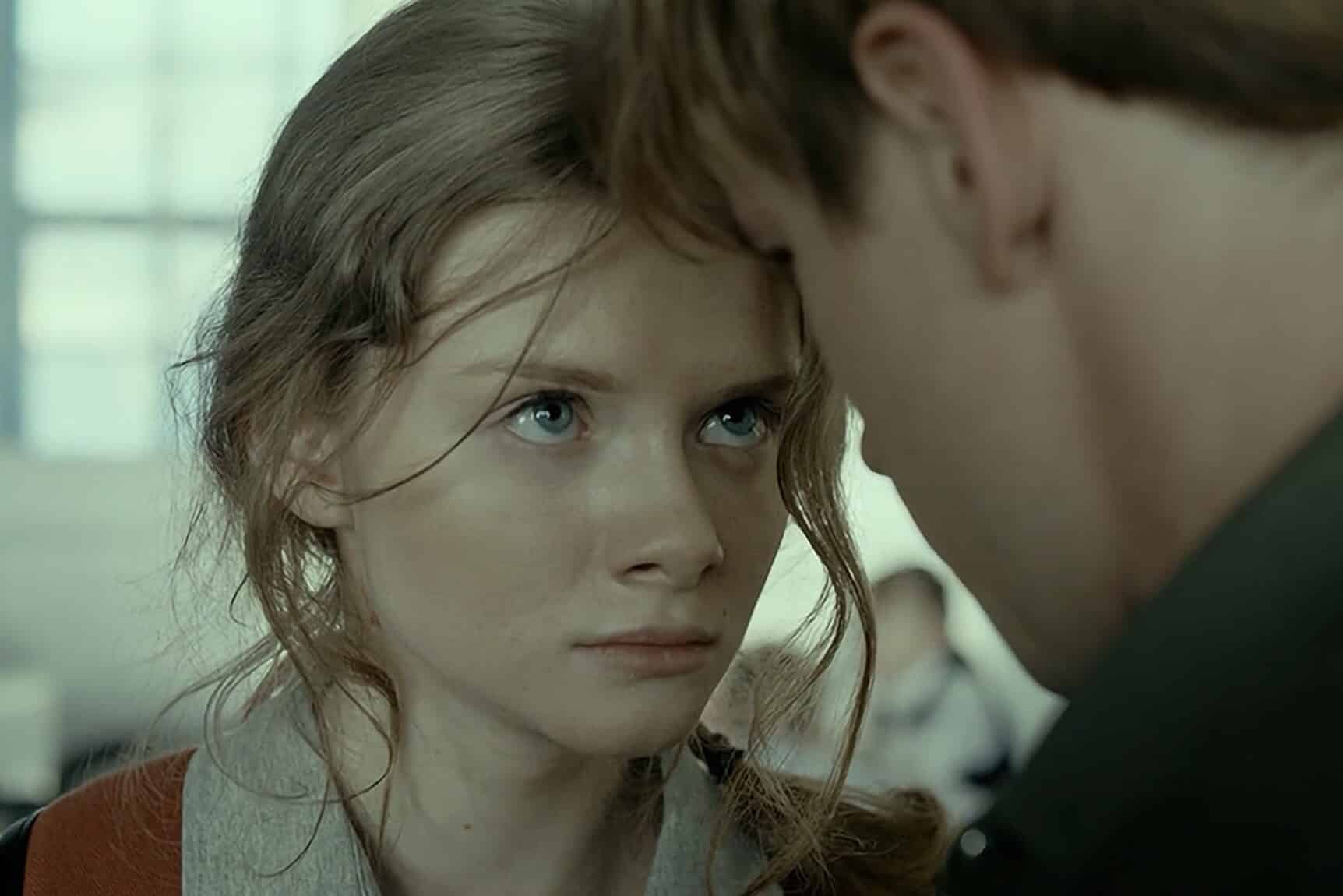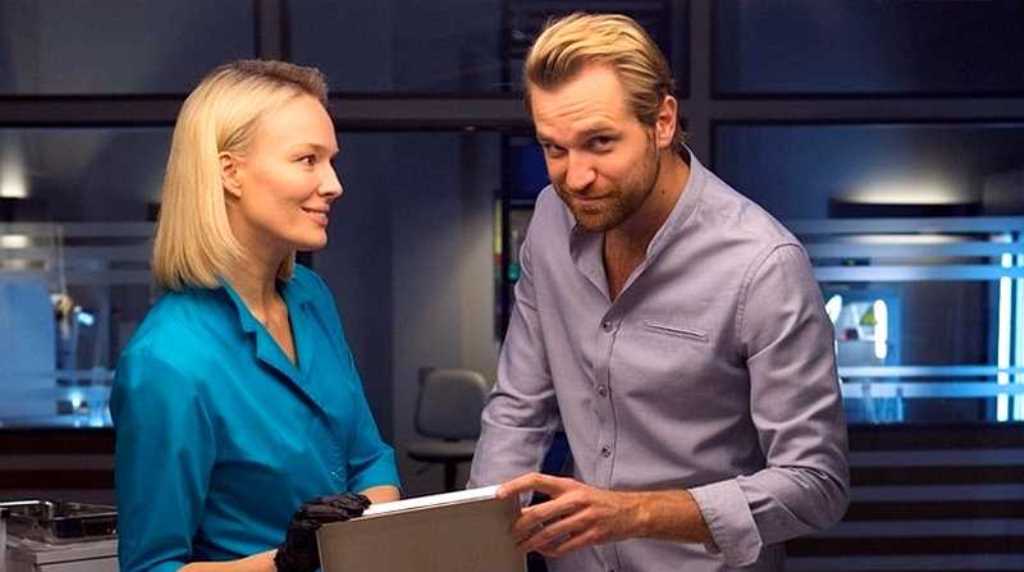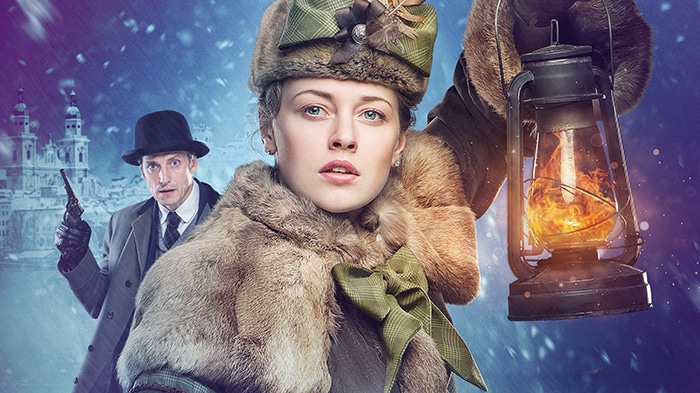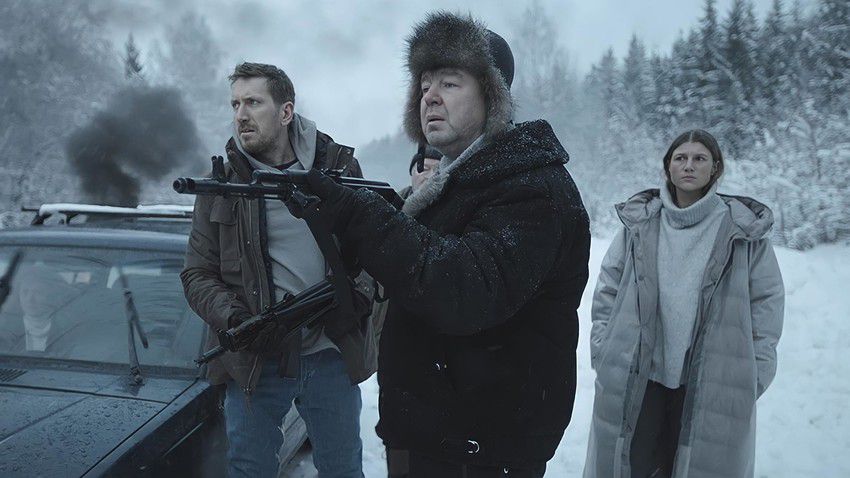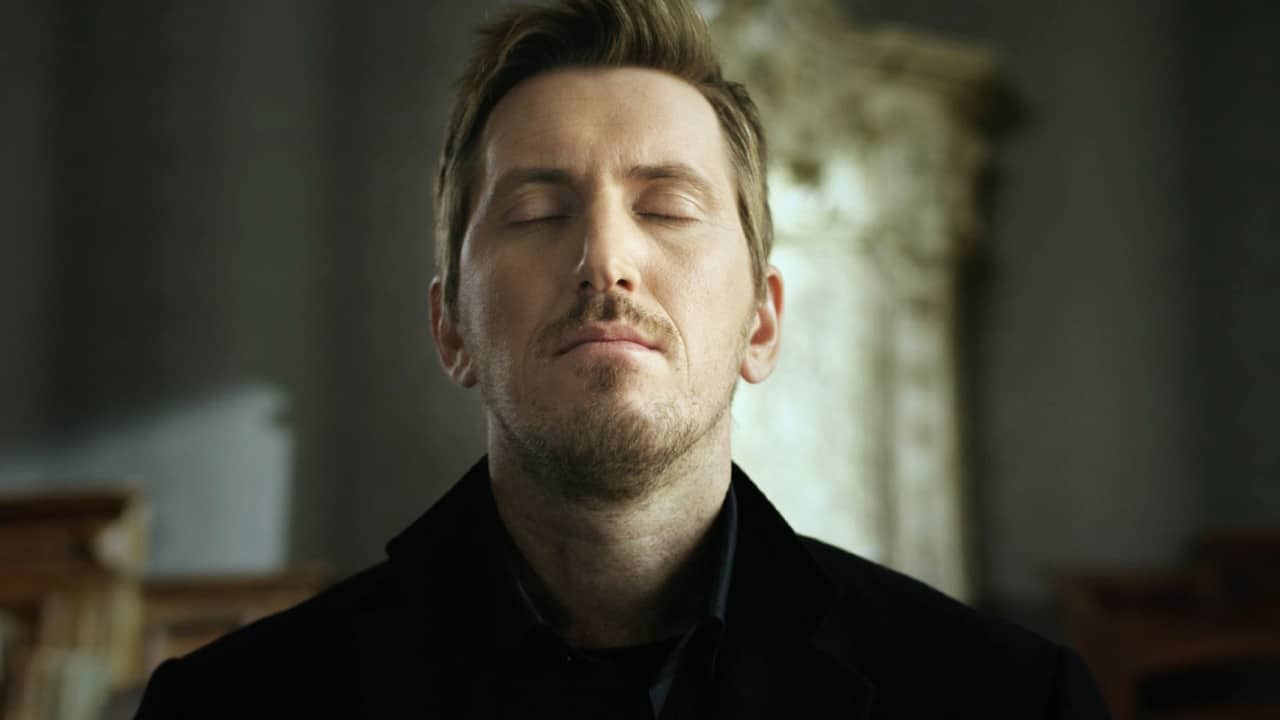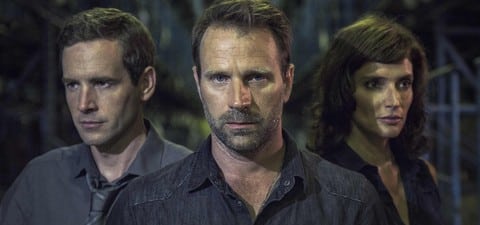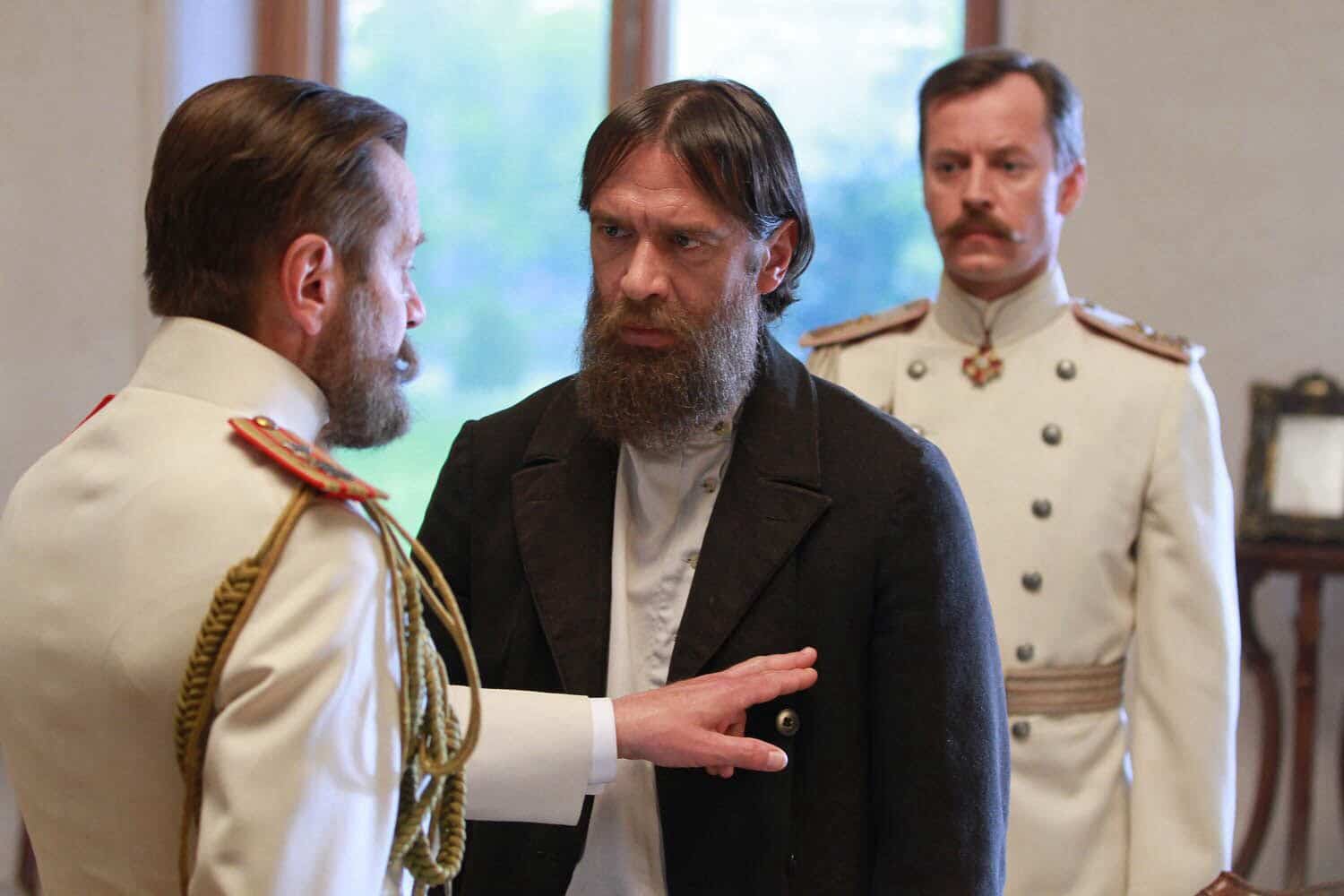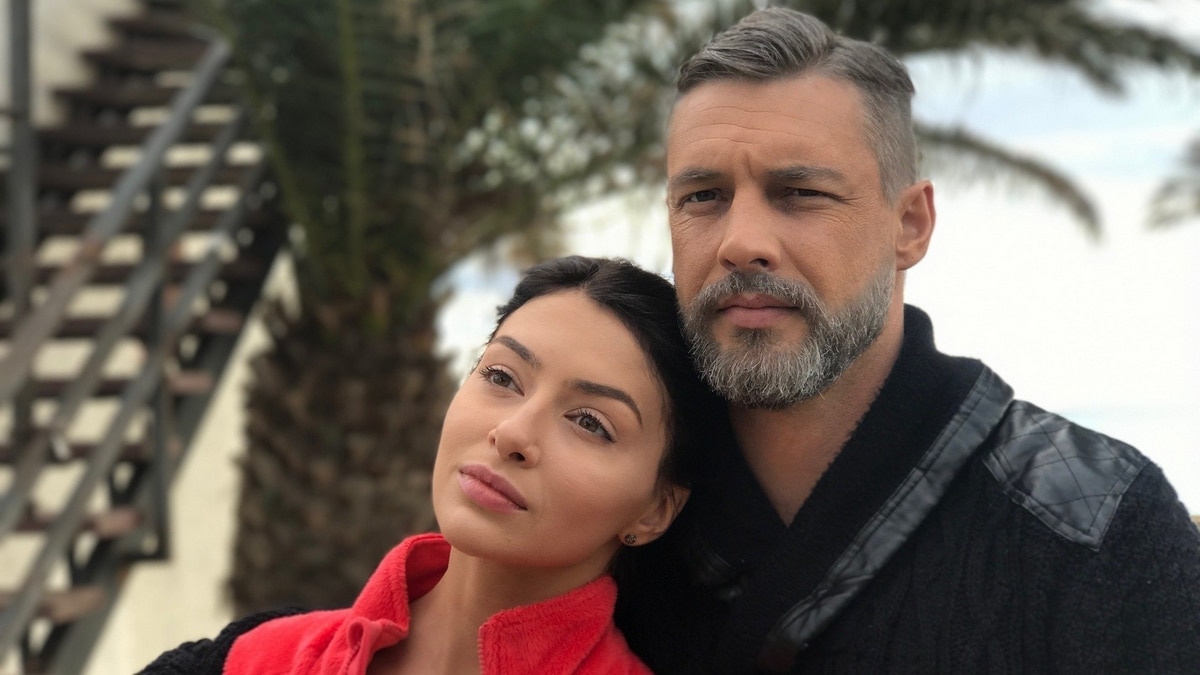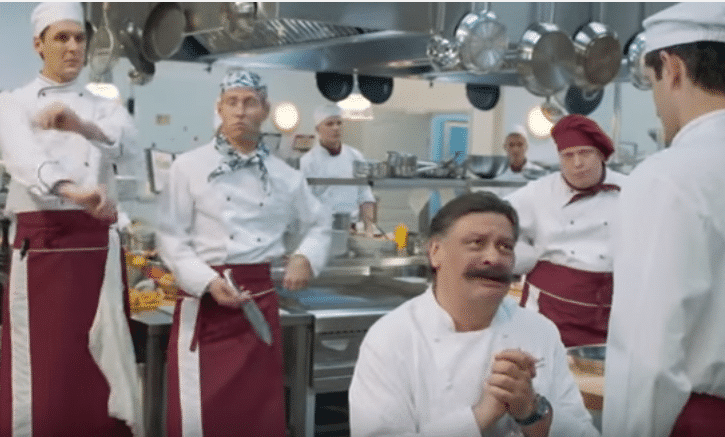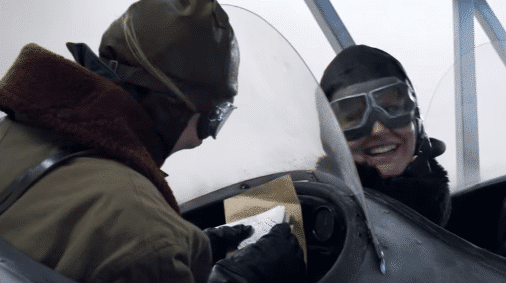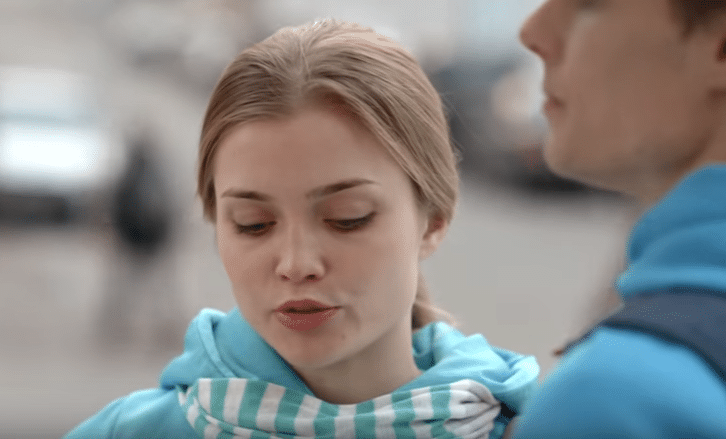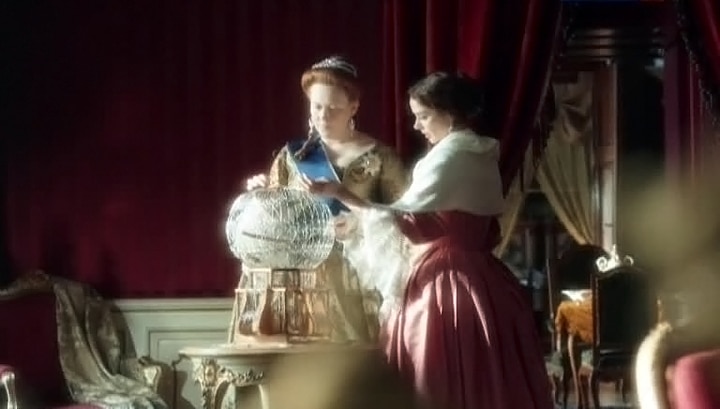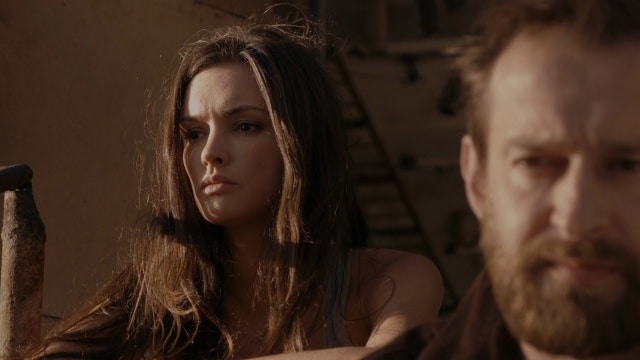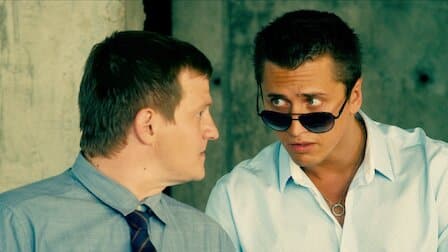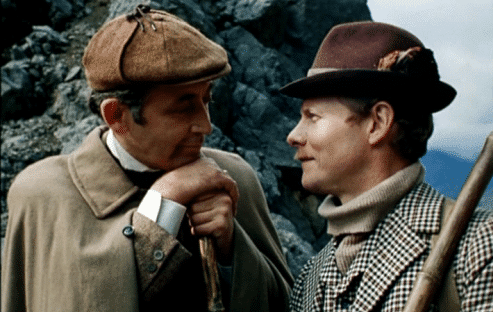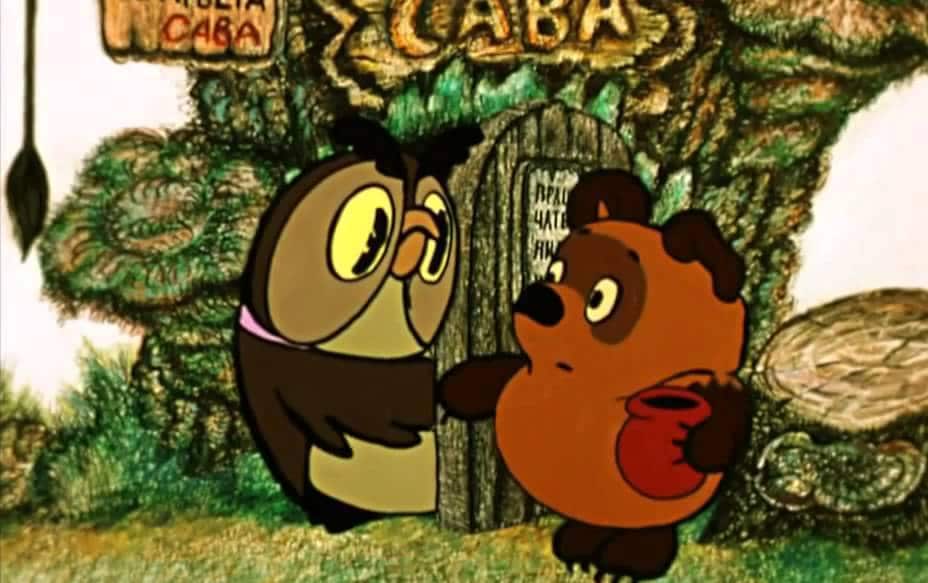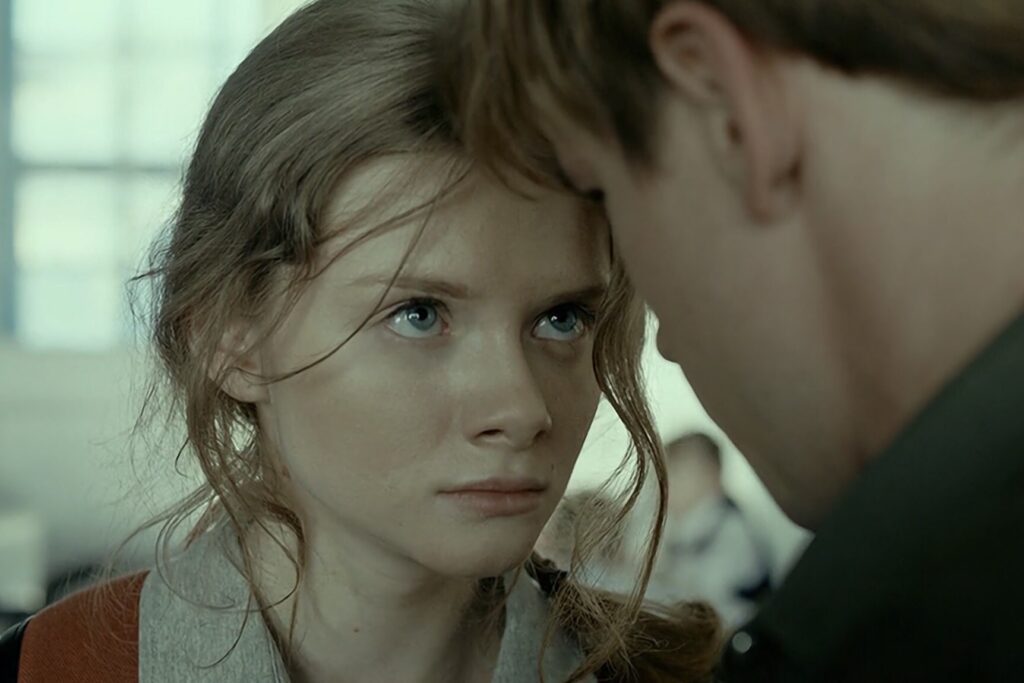
The 20 Best Russian TV Shows for Learners
If one of your guilty pleasures is watching TV when you really ought to be studying your Russian, get ready to let go of that guilt.
I’m going to let you in on a little secret: You can find everything from basic Russian words to the complexities of Russian slang and colorful idioms…simply by binge-watching some Russian TV shows.
Grab that remote control and get comfy—it’s time to tune into your new Russian classroom!
Contents
- 1. Better Than Us (Лучше, чем люди)
- 2. Sparta (Sпарта)
- 3. Autopsy Will Show (Вскрытие покажет)
- 4. Detective Anna (Анна-детективъ)
- 5. To The Lake (Эпидемия)
- 6. The Sniffer (Нюхач)
- 7. Contact (Контакт)
- 8. Rasputin (Григорий Р)
- 9. Nothing Happens Twice (Ничто не случается дважды)
- 10. The Kitchen (Кухня)
- 11. P.E. Teacher (Физрук)
- 12. Night Swallows (Ночные Ласточки)
- 13. Wind in the Face (Ветер в Лицо)
- 14. Ekaterina (Екатерина)
- 15. The Method (Метод)
- 16. Silver Spoon (Мажор)
- 17. Sherlock Holmes (Шерлок Холмс)
- 18. Winnie the Pooh (Винни-Пух)
- 19. Evening Urgant (Вечерний Ургант)
- 20. One to One! (Один в Один!)
- 3 Reasons Why You Should Watch Russian TV Shows
- And One More Thing...
Download: This blog post is available as a convenient and portable PDF that you can take anywhere. Click here to get a copy. (Download)
1. Better Than Us (Лучше, чем люди)
What it’s about:
“Лучше, чем люди” (literally, “Better than humans”) is a sci-fi thriller set in the near future.
In this world, androids—robots made to look like humans—have become an everyday reality, integrating into the home lives of many.
However, not everyone is thrilled about this technological development: The Liquidators are fighting to eliminate these embodiments of artificial life.
What you’ll learn:
Look out for lots of tech vocabulary as you watch “Лучше, чем люди.” You’ll also learn household words and words associated with family dynamics.
2. Sparta (Sпарта)
What it’s about:
Cop drama meets cyberpunk in this one-season series.
Inspector Kryukov, a seasoned police captain, is called in to investigate the suspicious death of a teacher at a local high school.
Although he originally dismisses her death as a suicide, Kryukov’s undercover inquiry at the school places him in the students’ lives as a teacher—and plunges him into a dangerous virtual reality game called “Sпарта” (Sparta).
What you’ll learn:
A lot of the dialogue is delivered at a fairly slow pace, so this would be a good choice for lower-level intermediate learners (or even upper-level beginners).
This series will give you insights into Russian school life, some slang and game-related language.
3. Autopsy Will Show (Вскрытие покажет)
What it’s about:
Inga Vilka is a medical examiner whose brusque manner makes her more suited to working with the dead than the living.
Despite her crusty exterior, her dedication and often brilliant insights make her a valuable part of criminal investigative teams.
What you’ll learn:
“Вскрытие покажет” (“Autopsy will Show”) will teach you vocabulary related to medicine, pathology and police investigation.
The dialogue is moderately paced so both intermediate and advanced learners should find it accessible.
4. Detective Anna (Анна-детективъ)
What it’s about:
Like a 19th-century version of “Medium” or “The Ghost Whisperer,” young Anna from Zatonsk has the ability to communicate with the spirits of the dead through her dreams. She uses her special talent to find answers to otherwise unsolvable crimes.
What you’ll learn:
This show deals with metaphysical matters such as dreams and the afterlife, so you’ll learn some vocabulary related to these topics. In addition, you’ll get a glimpse into 19th-century Russia.
The series is also available on YouTube with optional English subtitles for advanced learners who’d like to challenge themselves more.
5. To The Lake (Эпидемия)
What it’s about:
“Эпидемия” literally translates to “Epidemic” in this post-apocalyptic drama series based on the bestselling novel by Yana Vagner.
When Moscow finds itself completely disrupted by a widespread plague, a contentious band of uninfected people escapes to relative safety on the outskirts of civilization.
But they soon find themselves beset by external violence, internal conflict and the threat of infection.
What you’ll learn:
You’ll see characters in desperate and dire situations. As such, you’ll learn vocabulary for expressing fear and anger, remorse and regret.
There’s a lot of action and fast dialogue in this series, so it might be a better choice for upper-intermediate and advanced learners.
6. The Sniffer (Нюхач)
What it’s about:
The man they call “the Sniffer” has a unique talent: Not only is his sense of smell preternaturally acute, but he also has the ability to accurately identify the specific chemicals he smells—and use them to unlock mysteries.
What you’ll learn:
With the frequent use of chemical names, this witty and gritty series might be better appreciated by upper-intermediate and advanced learners.
7. Contact (Контакт)
What it’s about:
Oleg, Benedict and Vladimir are three strangers from very different walks of life. Suddenly, they find themselves unwittingly linked together by an unexpected event.
In this sci-fi thriller, sometimes called “Kontakt,” a government experiment gone awry catches the three main characters in the blast radius of an explosion. This event confers strange psychic powers upon them.
Oleg uses his new powers to see life through someone else’s eyes. Benedict uses his powers to exact vengeance upon his enemies—through someone else’s actions. Vladimir, who once used others for his own gain, now finds himself a pawn.
What you’ll learn:
Much of the dialogue has straightforward, everyday vocabulary. There are also some medical and military terms used.
Since the captions can’t be turned off when streaming this series on Amazon, it’s accessible to all levels of learners.
8. Rasputin (Григорий Р)
What it’s about:
Mythical mystic Григорий Ефимович Распутин (Grigori Yefimovich Rasputin) was legendary for his seeming inability to be killed.
The deed was eventually accomplished, however. This series explores the circumstances behind the death of this larger-than-life figure.
What you’ll learn:
When watching this series, you’ll get a crash course in Russian life before the revolution. There’s also a lot of vocabulary related to religious life and politics.
With no option to turn off the English subtitles in the Amazon Prime Video broadcast, every learner from beginner to advanced level can enjoy this program.
9. Nothing Happens Twice (Ничто не случается дважды)
What it’s about:
This is the early 1990s story of love, betrayal and violence in a Russian-Georgian border town.
The lives of military personnel and workers at an orphanage intertwine, often in difficult ways that lead to interpersonal conflict.
What you’ll learn:
Words for everyday life are used in the home of a young family. Military terminology, medical words and romantic language also play a role in this drama.
The dialogue is at a natural pace. Even so, intermediate learners can probably catch most of the words.
Unfortunately, there are no Russian captions available. However, advanced learners can challenge themselves by turning off the English subtitles.
10. The Kitchen (Кухня)
What it’s about:
Maxim Lavrov is on a quest to become a world-famous cuisinier. As such, he must deal with the surly yet talented Viktor Barinov, head chef at the fictional Claude Monet restaurant.
The restaurant serves the clientele at a fancy hotel. It’s populated by a colorful cast of characters, including cooks, waitstaff and Lavrov’s best friend, the barman Anisimov.
Dmitry Nagiev, a real-life actor, plays the owner of the restaurant as an ersatz version of himself.
With romantic rivalries and other hijinks, “The Kitchen” serves up gourmet Russian comedy.
What you’ll learn:
The vocabulary isn’t terribly advanced and the actors speak relatively slowly and clearly, so this is a good show for any level of language learner. Beginners may want to rely on closed captioning, though.
Since the show is set in a restaurant kitchen, you’ll learn a lot of words about food and cooking.
11. P.E. Teacher (Физрук)
What it’s about:
When business and brutality prove to be a mismatch, private security officer Foma trades his ammo for athletics.
By working as a gym teacher, Foma hopes to prove to his former employer—whose daughter just so happens to attend Foma’s new school—that he’s worthy of re-hiring.
Dmitry Nagiyev, the actor who plays a version of himself in “Кухня” (“The Kitchen”), plays the lead.
Although the name of this series, “Физрук,” translates as “P.E. Teacher” in English, it’s sometimes called “Fizruk” (a transliteration, or Romanization, of its Russian title).
What you’ll learn:
This is best for advanced learners since the video offers no subtitling and the speech is not as clear as many other shows. However, if you jump into this one, you can expect to learn loads of school and fitness-related vocabulary.
12. Night Swallows (Ночные Ласточки)
What it’s about:
Known as die Nachthexen (“Night Witches”) to their German enemy, the “Night Swallows” were a real-life unit of World War II female bomber pilots.
Marina Mikhaylovna Raskova, once an aspiring opera singer and later a Major in the Soviet Air Forces, successfully lobbied Joseph Stalin to create an all-female fighter pilot regimen in 1941.
From 1942-1945, the 46th “Taman” Guards Night Bomber Aviation Regiment flew over 23,000 combat sorties. The pilots disrupted enemy travel and communications by blowing up warehouses, depots, railways and bridges.
“Night Swallows” dramatizes these historic missions in eight intense episodes.
What you’ll learn:
The relatively slow rate of speech combined with the subtitling make this a good option for any language learner. You’ll learn some Russian military history and war terminology as you watch.
13. Wind in the Face (Ветер в Лицо)
What it’s about:
This 2014 drama is about a woman whose life essentially falls apart. Given the turmoil in her personal life, she decides to give up her unborn child. However, she soon starts to second guess this decision.
What you’ll learn:
The subtitling will make it approachable for any language learner, but the background noise can sometimes muffle the speech—so it’s probably best for intermediate and advanced learners.
You’ll pick up plenty of useful words for describing everyday life and personal dramas.
14. Ekaterina (Екатерина)
What it’s about:
This 2014 period drama tells the story of a Prussian princess as she rises to power and ultimately becomes Russia’s famed empress Catherine the Great.
What you’ll learn:
This is appropriate for any language learner. While some words may be too advanced for beginners, the rate of speech is slow and most of the words can be applied in many contexts. This is a fantastic way to hear what basic, natural conversations sound like.
While the historical accuracy of this series is questionable, its ambiance can give you a basic impression of life in 18th century Russia.
15. The Method (Метод)
What it’s about:
When the rule of law fails to render justice, police investigator Major Rodion Meglin goes outside of it. His method for settling scores with the criminally insane is known only to him—until he takes on a trainee.
Esenya Steklova, whose own family life had been disrupted by foul play, becomes Meglin’s protégé. As the series unfolds, unexpected connections between the characters are revealed.
“The Method” is a deep, dark thriller that plunges into the seamy underbelly of Russian crime.
What you’ll learn:
You can pick up some legal jargon and crime-related terms.
This show can be watched with either Russian captions or English subtitles—or without either. However, the speaking isn’t as clear as some series.
16. Silver Spoon (Мажор)
What it’s about:
“Мажор” (literally, “Major”) is a crime drama that tells the story of Igor Sokolovsky.
His life of privilege changes radically when his father forces him to work for a living at a police station—the same precinct where he’d recently gotten into an altercation with two officers.
Igor’s time at the police station changes him. He loses his arrogant attitude as he confronts real-life problems. His work also becomes personal, as he uses his newly developed investigative skills to unravel a tragic mystery from his past.
What you’ll learn:
“Major” is full of police procedural vocabulary as well as the language of street life. The speech flies fast and there’s lots of slang, so this one might work better for intermediate and advanced learners.
17. Sherlock Holmes (Шерлок Холмс)
What it’s about:
Take a wild guess, and much like the famed detective himself, your deduction will probably be accurate.
Yes, this show is about the familiar character Sherlock Holmes. The series aired in November, 2013. It’s set in London in the 1800s and follows the unique cases of the famed detective.
What you’ll learn:
This show is approachable to most levels of Russian learners, though beginners might have a hard time since the vocabulary is pretty advanced. Still, it’s an immersive way to get accustomed to the sounds of the language.
The show is set in the 19th century and focuses on crime-solving, so you’ll learn a lot of crime-related and old-timey words.
18. Winnie the Pooh (Винни-Пух)
What it’s about:
Journey to the Hundred-Acre Wood and join Винни-Пух (Winnie the Pooh) and his friends Piglet, Tigger, Kanga and Roo on their adventures.
Follow Pooh on his eternal quest for honey, as he battles gravity and angry bees. The Silly Old Bear you might know from his Walt Disney or Ernest H. Shepard incarnations is barely recognizable here.
Nevertheless, the true spirit of the childhood favorite shines through in this series of short Russian films from the 1960s and 1970s.
What you’ll learn:
Since this is designed for children, it will be useful for beginning speakers. But let’s be honest, who doesn’t want to watch an adorable cartoon bear? Intermediate and advanced speakers should also jump right in.
The vocabulary includes some useful animal and woodland terms (Винни-Пух is a bear, after all!)
19. Evening Urgant (Вечерний Ургант)
What it’s about:
This series that started in 2012 is essentially the Russian equivalent of late-night American talk shows you might be familiar with. The host, Ivan Urgant, is inspired by Jimmy Fallon and David Letterman.
Therefore, expect the episodes to begin with jokes about current events and pop culture before transitioning into celebrity interviews. You’ll also recognize some familiar faces: American celebrities often appear on the show.
What you’ll learn:
You can use some dicey auto-translate while watching on YouTube, but this show is still best for advanced speakers. Unless you’re an advanced speaker, understanding jokes can be challenging.
This show is a great option for advanced learners since it will help you learn words related to current events and entertainment. There are also lots of jokes and friendly conversations that happen during the interview segments.
20. One to One! (Один в Один!)
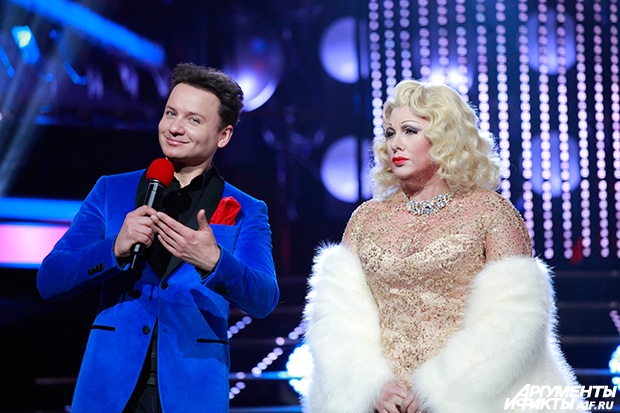
What it’s about:
This Russian talent show has been airing since 2013, where judges rate celebrities on their impersonations of famous singers.
What you’ll learn:
Since this show leans heavily on music, it’s a great option for any language learner who prefers to listen to music but would benefit from the context clues of TV.
While many songs are fairly slow, this is probably better for advanced learners since it can be hard to distinguish words.
And, if you suddenly feel like you’re understanding everything, take a minute to figure out if they’re actually performing an English-language song.
“Один в один!” can help you learn general vocabulary, with a special focus on love-related words.
3 Reasons Why You Should Watch Russian TV Shows
If you’re looking for more reasons to watch Russian shows, we’ve got you covered!
Russian TV Shows Make Learning Easier and More Fun
Find a TV show that you’re interested in, and you’ll want to watch it purely for its entertainment value. This will make learning Russian feel almost effortless!
Watching Russian TV Shows Improves Your Listening Comprehension
When it comes to learning almost any language, listening skills are important.
Russian has some unique sounds that can be challenging to learners. The more often you hear these sounds, the easier they become to understand and pronounce.
When you watch Russian TV shows, you do more than just improve your understanding of the spoken language. By practicing your Russian listening skills with these programs, you’ll also improve your own pronunciation of the language.
Russian TV Shows Deliver Authentic Native Speech
Russian TV shows will expose you to how the language is really used in everyday life.
Traditional language learning materials can help you learn the grammar, structure and basic vocabulary of Russian. But nothing can propel you to fluency more than experiencing real-world usage.
Learning Russian through music or other audio can certainly be helpful. That said, Russian TV shows have the added advantage of giving you visual cues to understand what’s happening. You can use these cues to figure out dialogue, events or plot twists without having to pause to look up every unfamiliar word.
With so many great Russian TV shows available, why not indulge in some guilt-free binge watching?
Download: This blog post is available as a convenient and portable PDF that you can take anywhere. Click here to get a copy. (Download)
And One More Thing...
If you love learning Russian and want to immerse yourself with authentic materials from Russia, then I should also tell you more about FluentU.
FluentU naturally and gradually eases you into learning the Russian language and culture. You'll learn real Russian as it's spoken by real Russian people!
FluentU has a very broad range of contemporary videos. Just a quick look will give you an idea of the variety of Russian-language content available on FluentU:
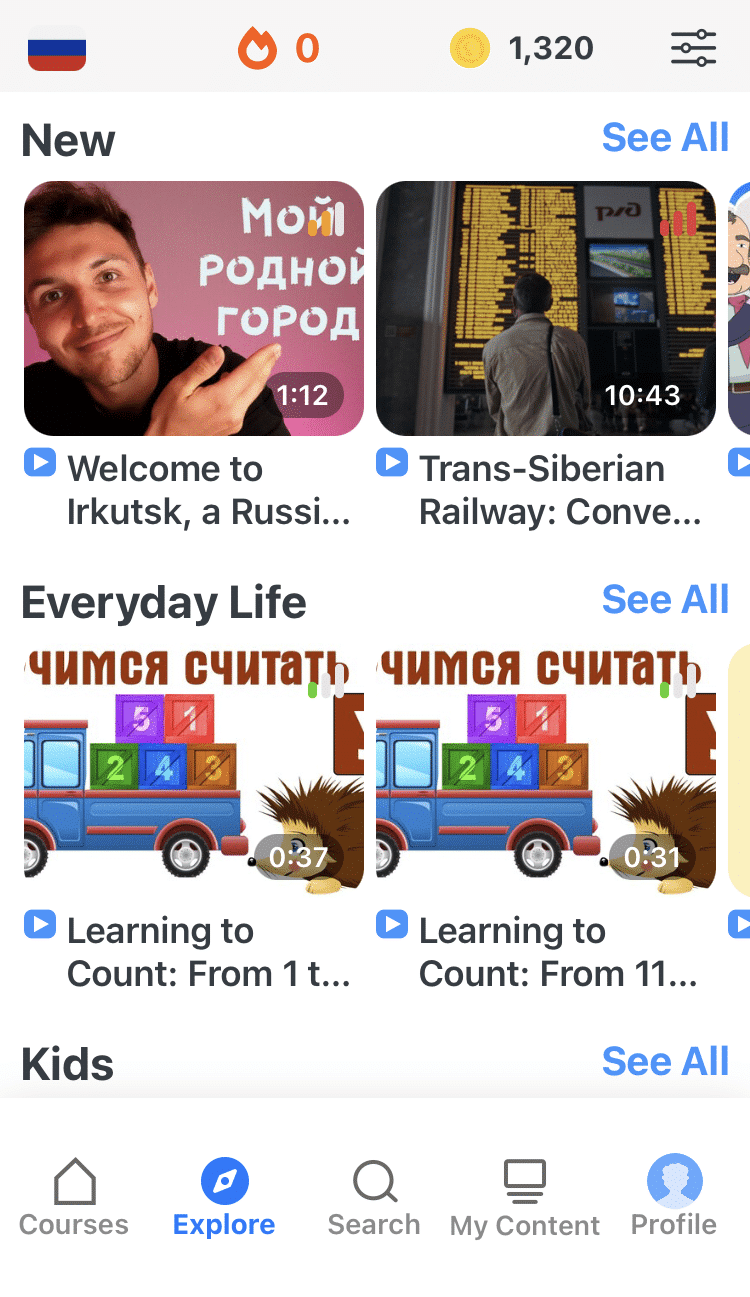
FluentU makes these native Russian videos approachable through interactive transcripts. Tap on any word to look it up instantly.
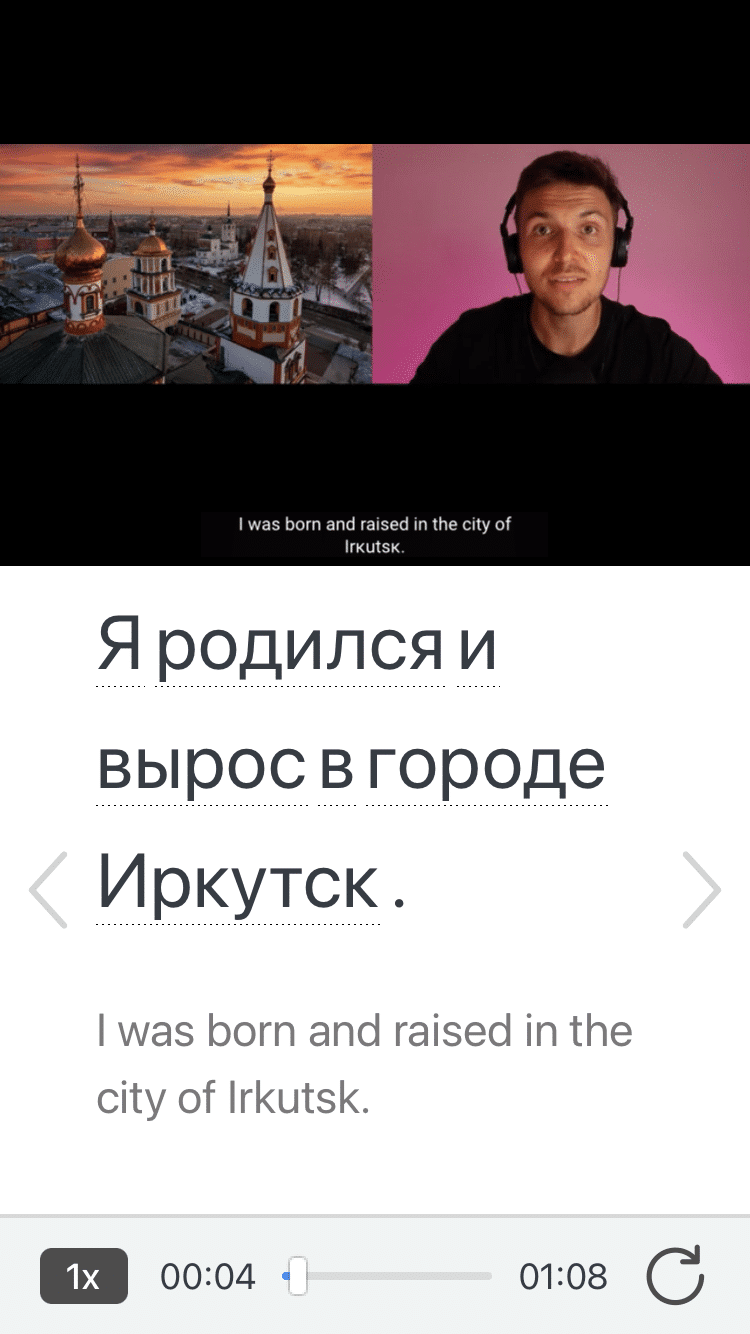
Access a complete interactive transcript of every video under the Dialogue tab. Easily review words and phrases with audio under Vocab.
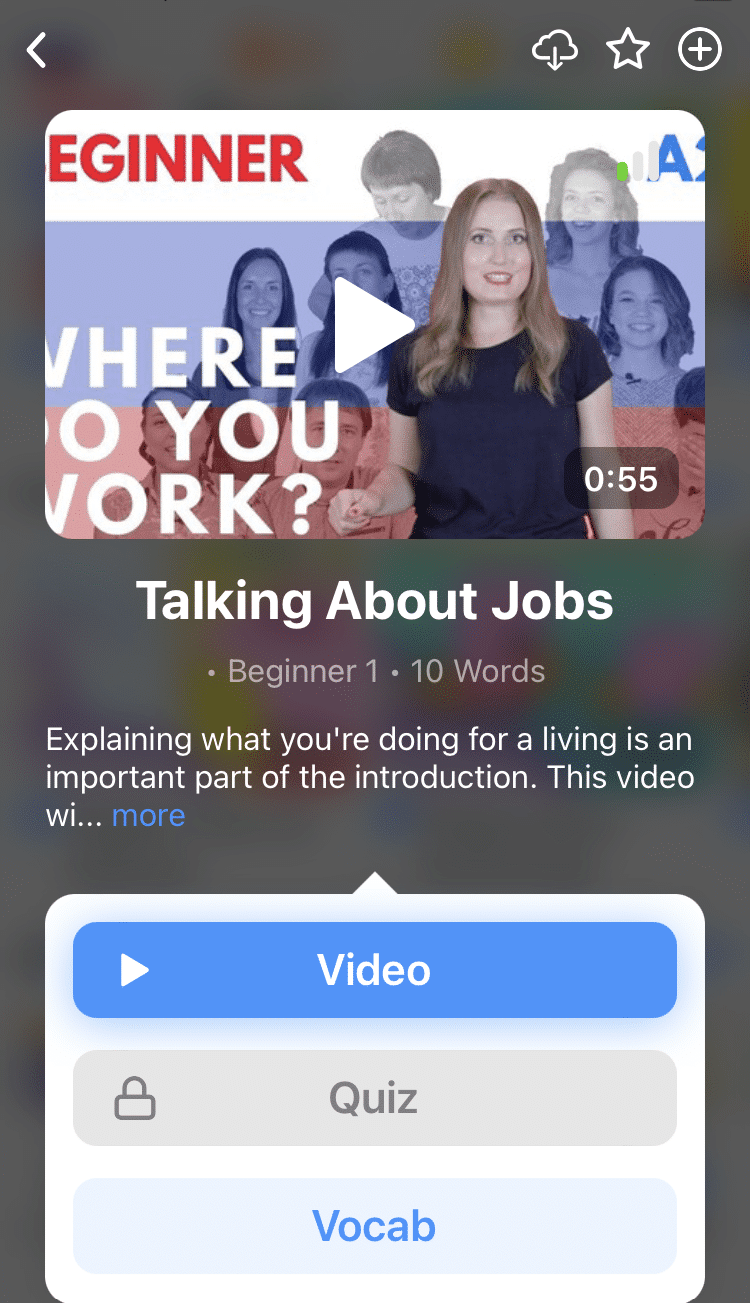
All definitions have multiple examples, and they're written for Russian learners like you. Tap to add words you'd like to review to a vocab list.
And FluentU has a learn mode which turns every video into a language learning lesson. You can always swipe left or right to see more examples.
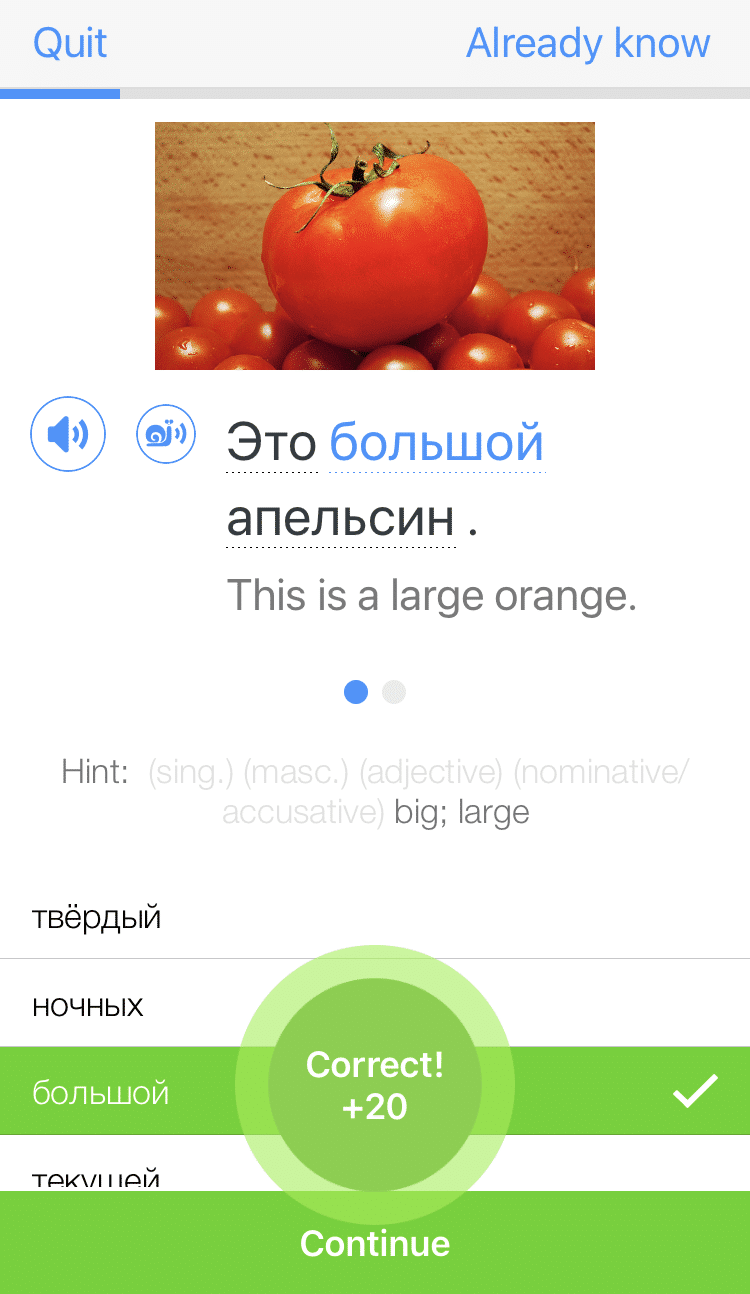
The best part? FluentU keeps track of your vocabulary, and gives you extra practice with difficult words. It'll even remind you when it’s time to review what you’ve learned. You'll have a 100% personalized experience.
Start using the FluentU website on your computer or tablet or, better yet, download the FluentU app from the iTunes or Google Play store. Click here to take advantage of our current sale! (Expires at the end of this month.)
